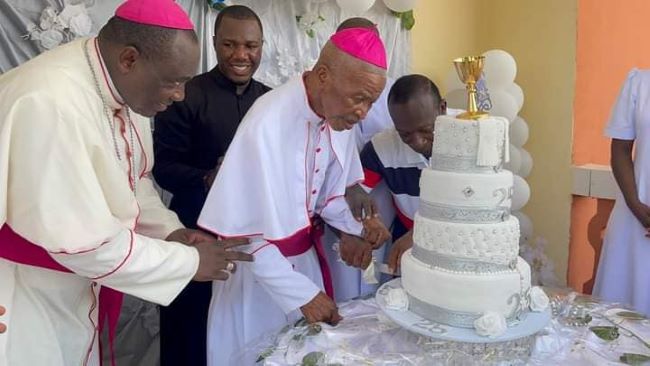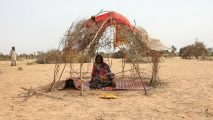Categories
Archives
- April 2024
- March 2024
- February 2024
- January 2024
- December 2023
- November 2023
- October 2023
- September 2023
- August 2023
- July 2023
- June 2023
- May 2023
- April 2023
- March 2023
- February 2023
- January 2023
- December 2022
- November 2022
- October 2022
- September 2022
- August 2022
- July 2022
- June 2022
- May 2022
- April 2022
- March 2022
- February 2022
- January 2022
- December 2021
- November 2021
- October 2021
- September 2021
- August 2021
- July 2021
- June 2021
- May 2021
- April 2021
- March 2021
- February 2021
- January 2021
- December 2020
- November 2020
- October 2020
- September 2020
- August 2020
- July 2020
- June 2020
- May 2020
- April 2020
- March 2020
- February 2020
- January 2020
- December 2019
- November 2019
- October 2019
- September 2019
- August 2019
- July 2019
- June 2019
- May 2019
- April 2019
- March 2019
- February 2019
- January 2019
- December 2018
- November 2018
- October 2018
- September 2018
- August 2018
- July 2018
- June 2018
- May 2018
- April 2018
- March 2018
- February 2018
- January 2018
- December 2017
- November 2017
- October 2017
- September 2017
- August 2017
- July 2017
- June 2017
- May 2017
- April 2017
- March 2017
- February 2017
- January 2017
- December 2016
- November 2016
- October 2016
- September 2016
- August 2016
- July 2016
- June 2016
Featured
 Bishop Francis T. Lysinge @ 25!
Bishop Francis T. Lysinge @ 25!  Understanding the Biya Francophone regime’s support for the Israeli genocide in Gaza
Understanding the Biya Francophone regime’s support for the Israeli genocide in Gaza  Poverty under Biya: Cameroonians embrace Chinese language for brighter futures
Poverty under Biya: Cameroonians embrace Chinese language for brighter futures  Cameroon is broken: Who can fix it?
Cameroon is broken: Who can fix it?  Ethiopia: U.S Senator Cardin Statement on the Killing of Bate Urgessa
Ethiopia: U.S Senator Cardin Statement on the Killing of Bate Urgessa
Most Commented Posts
 4 Anglophone detainees killed in Yaounde
4 Anglophone detainees killed in Yaounde
19 comments Chantal Biya says she will return to Cameroon if General Ivo Yenwo, Martin Belinga Eboutou and Ferdinand Ngoh Ngoh are sacked
Chantal Biya says she will return to Cameroon if General Ivo Yenwo, Martin Belinga Eboutou and Ferdinand Ngoh Ngoh are sacked
13 comments Anglophone Nationalism: Barrister Eyambe says “hidden plans are at work”
Anglophone Nationalism: Barrister Eyambe says “hidden plans are at work”
12 comments The Anglophone Problem – When Facts don’t Lie
The Anglophone Problem – When Facts don’t Lie
12 comments Largest wave of arrest by BIR in Bamenda
Largest wave of arrest by BIR in Bamenda
10 comments
Latest Tweets
Featured
-

King Charles III to resume public duties next week following cancer treatment
-

Indomitable Lions Crisis: FIFA refuses to acknowledge Marc Brys
-

Bishop Francis T. Lysinge @ 25!
-

10 Million Cameroonians lived on less than $1.80 per day
-

Football: Xavi to remain as Barcelona coach
-

Biya regime delays bond sale amid regional market strain
-

Historic agreement between Nigeria and Cameroon to tackle wildlife crime
© Cameroon Concord News 2024
24, June 2021
Battle For Bangui: France, UK and US accuse Russia of human rights violations 0
The United States, Britain and France accused Russia on Wednesday of operating alongside Central African Republic forces and committing human rights violations against civilians and obstructing U.N. peacekeeping – charges immediately denied by Russia which denounced the Western nations for engaging in an “anti-Russia political hit job.”
The exchanges took place at a U.N. Security Council meeting after the U.N. special representative for the conflict-wracked Central African Republic, Mankeur Ndiaye, expressed serious concern at the military counter-offensive by the country’s security forces and “bilateral forces and other security forces” against a coalition of rebel groups which supports CAR’s former president Francois Bozize.
Ndiaye called the situation in CAR “among the most dangerous in the world,” saying violations of human rights and international law allegedly committed by CAR forces “and bilateral and other personnel …have never equaled those recently committed and detailed by MINUSCA,” the 15,000-strong U.N. peacekeeping force in the country.
As one example, he said, the number of sexual violence-related incidents in the first quarter of 2021 was five times higher than the number reported in the last quarter of 2020.
While Ndiaye didn’t identify “the bilateral forces and other security forces,” Russia has troops in CAR training its military at the invitation of the government.
A recent report to the council by Secretary-General Antonio Guterres strongly criticized CAR’s security forces and bilateral forces for an “unprecedented increase in hostile threats and incidents” targeting U.N. peacekeepers and alleged human rights abuses. He said people in the country continue to face an “unacceptably high level of violence.”
The mineral-rich Central African Republic has faced deadly inter-religious and inter-communal fighting since 2013. A peace deal between the government and 14 rebel groups was signed in February 2019, but violence blamed on former president Bozize and his allies threatens to nullify the agreement.
It erupted after the constitutional court rejected Bozize’s candidacy to run for president in December. Faustin Archange Touadera won a second term with 53% of the vote, but he continues to face opposition from rebel forces linked to Bozize.
France, US cite targeting of CAR Muslims
U.S. deputy ambassador Richard Mills noted Secretary-General Guterres’ report of a 28% increase in incidents of human rights violations and abuses and violations of international humanitarian law over the past four months. He said the United States is deeply concerned at the increased targeting of Muslims, and the alarmingly sharp increase in abuses committed by national and bilateral personnel.
“I think we need to be clear about these bilateral personnel — the individuals committing what many are now referring to as ‘atrocities’ are not independent actors — they are operating as extension of Russia’s Ministry of Defense,” he said.
Mills said the Biden administration is “deeply disturbed” that Russia has failed “to prevent its mercenaries from impeding MINUSCA’s freedom of movement on a daily basis.” He condemned an “appalling incident in which these bilateral Russian actors threatened” MINUSCA’s deputy special representative and a U.N. delegation on a humanitarian mission to Bang, which is close to CAR’s border with Chad and Cameroon, on May 28.
France’s U.N. Ambassador Nicolas De Riviere called the situation in CAR “dramatic,” pointing to extrajudicial executions, gang rapes, torture, occupation of schools and violence particularly targeting Muslim communities, “as shown by the murder of a traditional chief a few days ago.”
“Let us be clear: Central African armed groups are no longer the only threat to the Central African population,” De Riviere said.
He said reports by the secretary-general and U.N. experts monitoring sanctions against CAR “point to the responsibility of a new actor, who is operating alongside the Central African armed forces and whose status is a mystery.”
“Some will try to deny the presence of the Wagner company,” De Riviere said, calling on MINUSCA to provide details of who these men involved in the fighting in CAR are and who they are accountable to for their actions. The Wagner Group is a Kremlin-backed security company that was implicated in the conflict in Libya.
Britain’s deputy ambassador James Roscoe said the armed groups are “fomenting instability, frankly, in order to line their own pockets.”
“And now, a new factor of instability: Russian private military companies acting in concert with the national armed forces to obstruct MINUSCA and to violate the rights of the civilians and citizens of the Central African Republic,” he said.
Roscoe said human rights violations, including acts of sexual violence, are not only being committed by armed groups “but also by members of the national armed forces and the Russian private military personnel accompanying them.”
He said the Russians will deny this, “but the evidence is increasing and overwhelming, and I hope they will reflect on the role they want to play in the Central African Republic and their responsibilities as a permanent member of this council.”
Russia: Allegations are ‘unfounded’
Russia’s deputy U.N. ambassador, Anna Evstigneeva countered that Russian instructors “are successfully enhancing the professional expertise of the Central African security forces without taking part in military actions against illegal armed groups.”
She said there are constant “dubious” attempts to discredit them without any evidence, especially in the U.S. and French media which use anonymous sources.
“This looks more like an anti-Russian political hit job,” Evstigneeva said.
“As for the unfounded allegations coming from the US, they’re not done by chance,” she said. “Our colleagues seem to see Russian instructors or mercenaries everywhere.”
(AP)